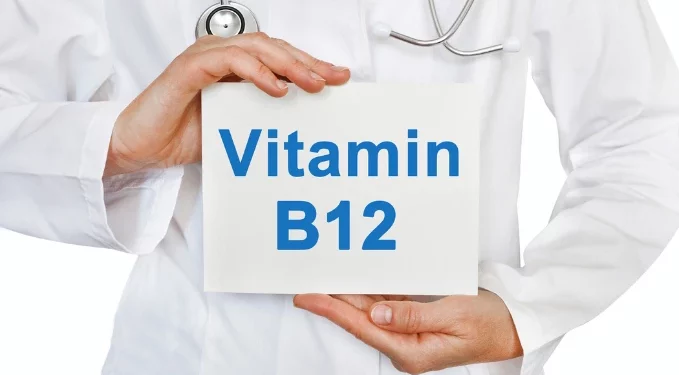Welcome to our blog post on the vital role of Vitamin B12 in human health. Have you ever wondered why this seemingly simple vitamin is so important? Well, get ready to be amazed! In this article, we’ll delve into everything you need to know about Vitamin B12 – from its sources and significance to common deficiency symptoms and risks. Whether you’re a health enthusiast or simply curious about how your body functions, join us on this journey as we uncover the incredible benefits of Vitamin B12.
Sources of Vitamin B12
Vitamin B12 is a vital nutrient that plays a crucial role in maintaining our overall health and well-being. While our body cannot produce this vitamin on its own, it can be obtained through various dietary sources.
Animal-based foods are the primary sources of vitamin B12. These include meat, fish, poultry, eggs, and dairy products such as milk and cheese. The liver is particularly rich in vitamin B1’2 content. So if you’re someone who enjoys liver dishes, you’re already getting a good dose of this essential nutrient.
For those following a vegetarian or vegan diet, obtaining enough vitamin B1’2 can be more challenging as plant-based foods do not naturally contain this nutrient. However, some fortified breakfast cereals and nutritional yeast are available that provide added vitamin B1’2 for individuals adhering to these diets.
In addition to food sources, there are also dietary supplements available that offer an easy way to ensure adequate intake of vitamin B12. These supplements come in various forms like capsules or sublingual tablets and can be taken daily or as recommended by your healthcare provider.
It’s important to note that the absorption of vitamin B1’2 decreases with age and certain conditions like gastrointestinal disorders may interfere with its absorption from food sources alone. In such cases, supplementation becomes even more necessary for meeting the body’s requirements.
Ensuring sufficient intake of vitamin B1’2 is crucial for maintaining optimal health. By incorporating animal-based foods into your diet or considering fortified options if you follow a vegetarian or vegan lifestyle along with appropriate supplementation when needed, you can support your overall well-being effectively.
The Importance of Vitamin B12 in Human Health
Vitamin B12 is an essential nutrient that plays a vital role in maintaining our overall health and well-being. This water-soluble vitamin is responsible for numerous important functions within the body, making it crucial for optimal functioning.
One of the key roles of vitamin B1’2 is its involvement in red blood cell production. It helps in the formation of healthy red blood cells, which are responsible for carrying oxygen throughout our body. Without adequate levels of this vitamin, we may experience fatigue, weakness, and even anemia.
In addition to its role in red blood cell production, vitamin B1’2 also supports the normal functioning of our nervous system. It aids in the synthesis of myelin, a protective layer around nerve fibers that ensures proper transmission of signals between the brain and other parts of the body. A deficiency in vitamin B1’2 can lead to neurological symptoms such as numbness or tingling sensations.
Furthermore, this essential nutrient plays a crucial role in DNA synthesis and cell division. It helps maintain healthy genetic material and promotes optimal growth and development. Vitamin B1’2 also supports energy metabolism by converting food into usable energy for our bodies.
It’s worth noting that some individuals have a higher risk of developing vitamin B1’2 deficiency than others. Vegans or vegetarians who don’t consume animal products are particularly susceptible since plant-based foods do not naturally contain this vitamin. Older adults also have an increased risk due to decreased absorption capacity as they age.
To ensure adequate intake of vitamin B12, it’s important to include sources such as meat (especially organ meats), fish (such as salmon and trout), eggs, dairy products, fortified cereals or nutritional yeast in your diet. In certain cases where deficiencies persist despite dietary modifications alone, supplements may be recommended under medical supervision.
Common Deficiency Symptoms and Risks
Vitamin B12 plays a crucial role in maintaining overall health, and a deficiency can lead to various symptoms and risks. One of the most common signs of low vitamin B12 levels is fatigue. If you often feel tired or lack energy even after getting enough sleep, it could be due to inadequate levels of this essential nutrient.
Another symptom of vitamin B12 deficiency is weakness and difficulty in performing physical activities. This can be attributed to the role that vitamin B12 plays in red blood cell production and oxygen transport throughout the body. Without sufficient amounts of this vitamin, your muscles may not receive an adequate oxygen supply, leading to weakness.
If you frequently experience numbness or tingling sensations in your hands or feet, it might be a result of a deficiency in vitamin B12. This condition is known as peripheral neuropathy and occurs when nerve damage affects these extremities.
In addition to these symptoms, low levels of vitamin B12 can also impact mental health. It has been linked to mood changes such as depression, irritability, and even memory problems.
Moreover, individuals with a long-term deficiency are at risk for developing more severe complications like pernicious anemia—a type of anemia caused by the inability to absorb sufficient amounts of this vital nutrient from food sources.
It’s important to note that certain groups have a higher risk for vitamin B12 deficiency than others. Vegetarians and vegans who do not consume animal-based products are particularly susceptible since plant-based foods do not naturally contain significant amounts of this nutrient.
Individuals with gastrointestinal conditions such as Crohn’s disease or celiac disease may also struggle with absorbing enough Vitamin B12 from their diet due to malabsorption issues within their digestive system.
Who is at Risk for Vitamin B12 Deficiency?
Vitamin B12 deficiency can affect anyone, but there are certain groups of people who may be at a higher risk. Let’s take a closer look at who these individuals are.
1. Vegans and Vegetarians: Since vitamin B12 is primarily found in animal products, those following strict plant-based diets may not get enough of this essential nutrient. It’s important for vegans and vegetarians to consider alternative sources or supplements to ensure they are meeting their B12 requirements.
2. Older Adults: As we age, our bodies have a harder time absorbing vitamin B12 from food sources. This puts older adults at an increased risk of deficiency, especially if they have digestive issues that further hinder absorption.
3. Those with Gastrointestinal Disorders: Conditions like Crohn’s disease, celiac disease, or other gastrointestinal disorders can interfere with the body’s ability to absorb vitamin B12 properly. Individuals with these conditions should work closely with their healthcare provider to monitor their B12 levels and determine if supplementation is necessary.
4. People on Certain Medications: Some medications such as metformin (used for diabetes), proton pump inhibitors (used for acid reflux), and certain antacids can interfere with the absorption or utilization of vitamin B12 in the body.
5. Heavy Alcohol Consumers: Excessive alcohol consumption can damage the lining of the stomach and intestines, impairing the body’s ability to absorb nutrients including vitamin B12.
It’s important for individuals in these high-risk categories to be aware of potential deficiencies and take appropriate steps to ensure adequate intake through supplementation or fortified foods!
How to Ensure Adequate Intake of Vitamin B12
Maintaining adequate intake of Vitamin B12 is essential for overall health and well-being. Here are some simple ways to ensure you’re getting enough of this vital nutrient.
It’s important to include foods that are rich in Vitamin B12 in your diet. Some excellent sources include meat, fish, eggs, and dairy products. For those following a plant-based diet, fortified cereals, nutritional yeast, and certain types of algae can provide a good amount of Vitamin B12.
Supplements can also be an effective way to ensure adequate intake. There are various forms available such as tablets or sublingual drops that can be easily incorporated into your daily routine. However, it’s always best to consult with a healthcare professional before starting any new supplements.
Another key factor in maximizing Vitamin B12 absorption is maintaining a healthy gut. Probiotics can help support gut health and optimize the absorption of nutrients from food.
Regular check-ups with your doctor can help monitor your Vitamin B1’2 levels and identify any deficiencies early on.
By incorporating these strategies into your lifestyle, you can promote optimal intake of Vitamin B1’2 and support overall health and vitality!
Conclusion and Recommendations
In this article, we have explored the vital role of Vitamin B12 in human health. From its sources to its importance and deficiency risks, it is clear that ensuring an adequate intake of this essential vitamin is crucial for overall well-being.







